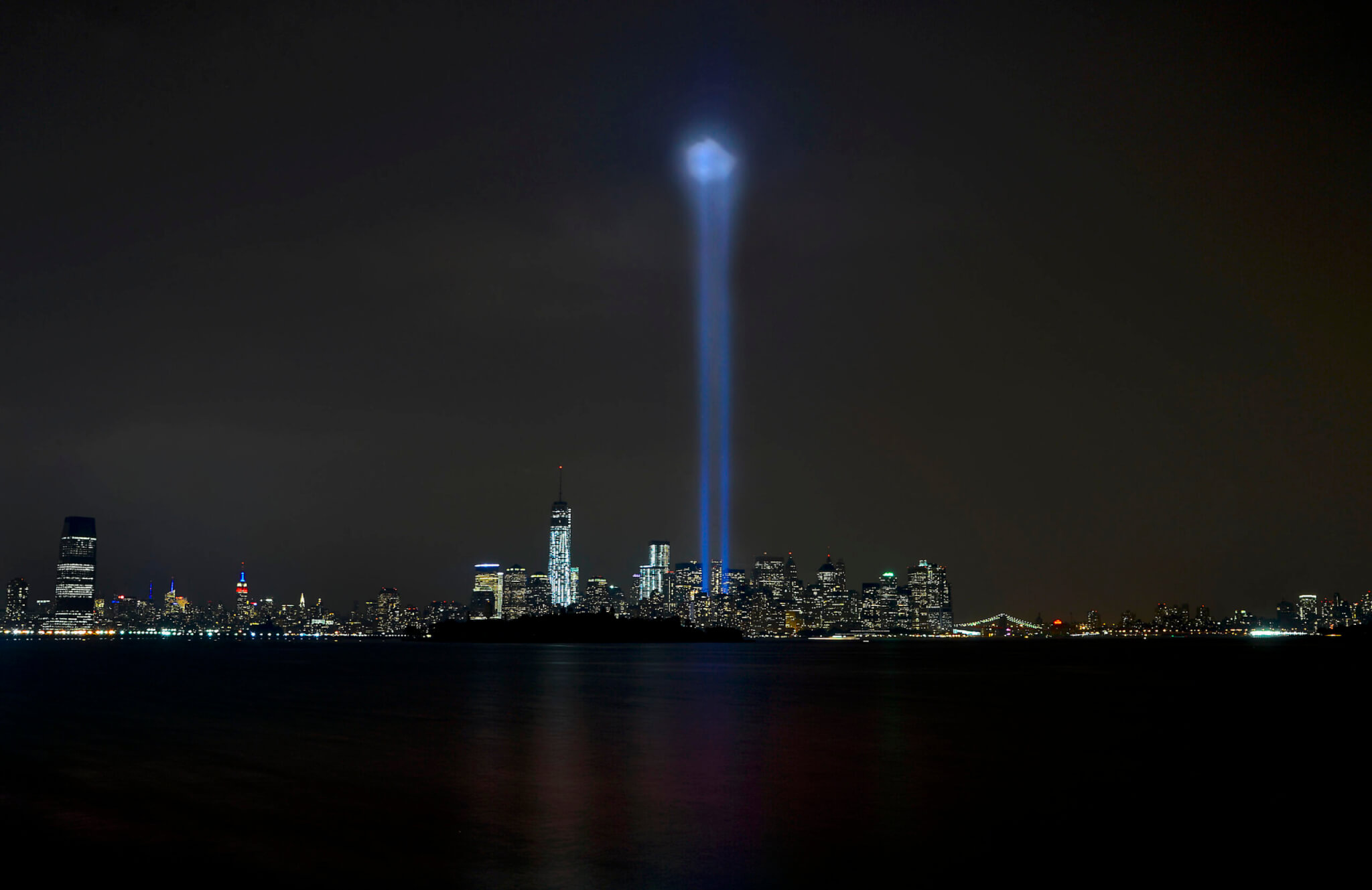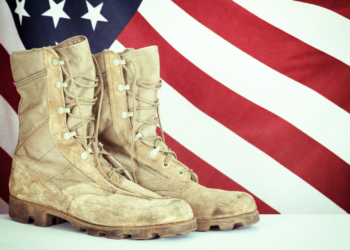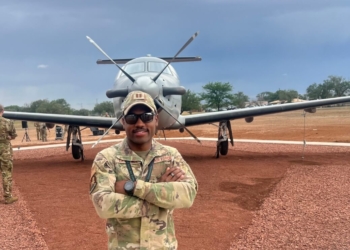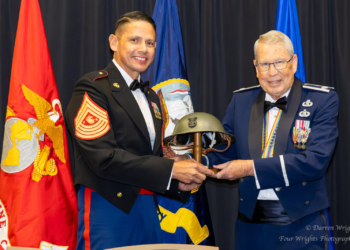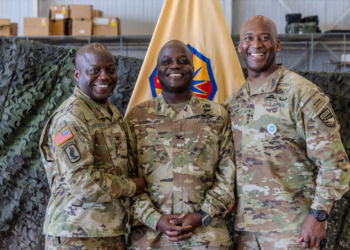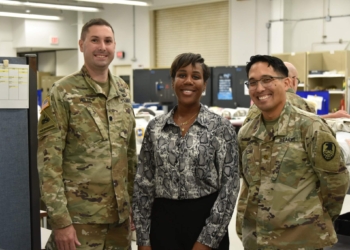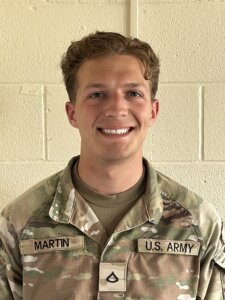
The first time Army Pfc. Phoenix Martin learned about the events of Sept. 11, 2001, he didn’t think much of it. After all, the day the Twin Towers fell, he was still two years away from being born.
“I think it was in like the fifth grade or something that my class watched a documentary about it,” he said. “It didn’t really pique my interest, and I don’t think my teacher was too interested either, because we just watched the video and continued on with our day.”
According to DOD statistics, as of July 11, 2023, there are 333,874 currently serving military members of all branches (including National Guard and reserves) who were born after 9/11. That number comprises more than 14% of the total force.
Marine Corps Pfc. Elijah Cooper is among that percentage. His memory of learning about 9/11 is as ho-hum as Martin’s. The aviation mechanic, born in 2005, was around 6 or 7 years old when he first heard about the nearly 3,000 people who lost their lives that day. He knew it was a tragedy but didn’t completely understand the magnitude.
Both men, who represent the first post-9/11 generation of service members, feel differently now.
Vim & valor
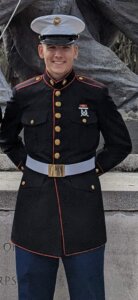
Martin and Cooper, both stationed in California, said that 9/11 was not a factor in their decision to join, but plays a role in how they serve.
“On my fifth grade Washington, D.C., field trip, we visited the Tomb of the Unknown Soldier,” Cooper said. “I saw the sentinels guarding it and how disciplined they were, and I knew I wanted that.”
His rural West Virginia family is full of military members tracing back to World War II. As he grew, Cooper knew he wanted to serve, too. He also began studying history.
“The older I’ve gotten, the more I took a personal look at Sept. 11,” he said. “Once I started being able to grasp what happened, I couldn’t believe that people would do that to other people.”
Martin, a small-town Oregonian training to be a human intelligence collector, considers himself “pretty patriotic.” As he aged and learned more about 9/11 in school, media or from people who lived through it, he began to feel angry.
“If another incident happens like that, I’m in the service and it’s going to be my responsibility to help out with it,” he said. “It makes me feel a little nervous, but that’s what I signed up to do, and at the end of the day, I’m ready to do it.”
Time marches on
But that fateful Tuesday morning 22 years ago doesn’t seem that far away to Army Brig. Gen. Daphne Davis, who was commissioned in 1992.
“It seems like yesterday,” said Davis, the Deputy Commanding General Support to the Commanding General in Army recruiting. “But I would say that as our society grows and changes over time, we as a military have grown and changed over time. The Army that these soldiers are in today, those who were born after 9/11, is totally different than the Army of our Cold War and Vietnam veterans.”
Davis occasionally gets to participate in Army swear-in ceremonies, often with youngsters who have no memories of 9/11. The experience still heartens her, she said.
“These young soldiers give me hope every single day,” she said. “It’s one of these young men and women who will one day be the sergeant major of the Army, or the chief of staff. They give us the hope in the future of our service and the protection of our nation.”
Cooper stands ready to do so.
“Even though I was born after it, every time I hear about Sept. 11, it reminds me of why I’m doing this,” he said, “so I can help make sure things like that don’t ever happen again.”
Read comments

